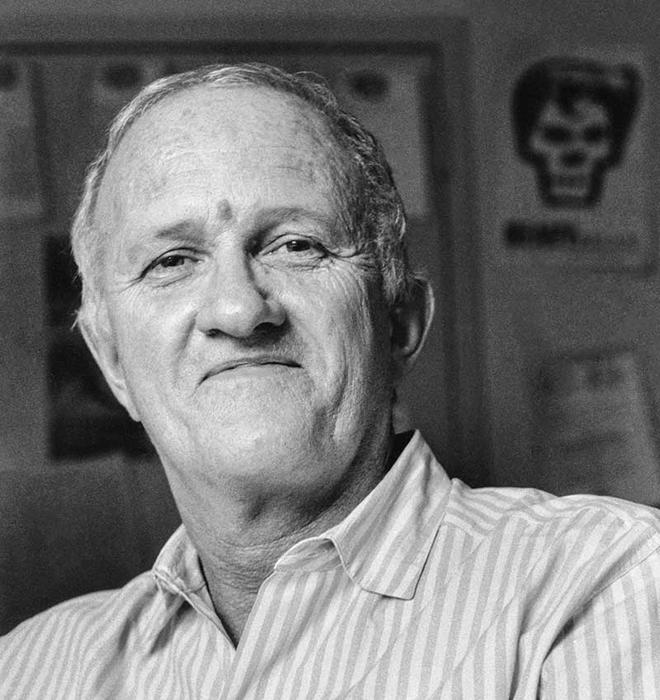
November 1, 1936 –
February 13, 2021
After a long career as a crusading investigative journalist, Jim Ridgeway ’59 found his most passionate cause in his 70s: inmates in long-term solitary confinement in U.S. prisons. He co-founded a watchdog group called Solitary Watch to support original reporting and first-person accounts of prisoners’ experience in solitary. For more than a decade, he read each letter received from a prisoner, and he felt that each deserved a response.
What started as a trickle of letters grew to hundreds each year. Once or twice a week Ridgeway would walk from his Washington, D.C., home the quarter-mile or so to the post office, using a walker after fracturing his hip. As his vision faded from glaucoma, volunteers would read the letters to him. In a 2016 essay called “Letters from the Hole,” Ridgeway recounted letters he had received and ways he had responded: with bits of news, answering a request for a Bible, a few words of encouragement — “Thanks for your letter. Stay strong.” The prisoners wrote back “with a level of gratitude totally disproportionate to my lame missives,” he said.
“Some of these people have done very bad things in their lives. Others not so much,” he wrote. “But after reading these letters, I can’t accept that even the worst of them deserve to live this way.” Ridgeway had great respect for prison journalists and started a program offering small grants to write about solitary confinement, helping to shape their writing and place it in publications. A fund in his memory will expand the program, says Jean Casella, the group’s co-founder and a longtime collaborator of Ridgeway.
“I have never met a more honest, meticulous, humble, and productive reporter.”
Ralph Nader ’55
The son and brother of Princetonians, as an undergraduate Ridgeway was chairman of The Daily Princetonian and signaled the path he would later follow. Under his leadership, the Bric-a-Brac reported, the Prince attacked the eating clubs, bicker, and what Ridgeway called the Futilitarian Ethic — “a do-nothing, go-nowhere attitude among undergraduates.”
Ridgeway contributed to publications as different as The Wall Street Journal and Mother Jones, and most notably wrote for 30 years at The Village Voice. “Jim was a muckraker in the glorious tradition,” says Tom Robbins, a fellow writer at the Voice. Described as a constant contrarian, Ridgeway turned out countless articles while authoring or editing 20 books on subjects that ranged from the big energy companies to national politics, unanswered questions about 9/11 to American universities’ undisclosed corporate interests. “He was particularly drawn to underdogs and outsiders, as well as people who stood up to injustice,” Casella says.
Writing for The New Republic early in his career, Ridgeway brought to light Ralph Nader ’55’s findings on suppressed auto-safety engineering, then revealed GM’s surreptitious efforts to investigate and discredit Nader. The subsequent publicity helped spur congressional passage of the National Traffic and Motor Vehicle Safety Act of 1966. “I have never met a more honest, meticulous, humble, and productive reporter,” Nader wrote after Ridgeway’s death.
Ridgeway’s 1991 book Blood in the Face was a groundbreaking investigation into far-right militias and other racist groups in America. Showing what Casella described as “incredible prescience,” the book warned that “the fringe is becoming part of the fabric” of American politics and was infiltrating the mainstream Republican Party. At the time of his death Ridgeway was completing a new edition of the book, to be published this spring. After the U.S. Capitol riot Jan. 6, 2021, Ridgeway told his son, David: “This is exactly what I was worried about.”
Journalist W. Raymond Ollwerther ’71 was managing editor of PAW and executive editor of the Asbury Park Press.
In 2012, Jim Ridgeway ’59 gave this interview about solitary confinement to Reason TV:
Listen to Ridgeway speak on the Ralph Nader Radio Hour in 2018:






No responses yet